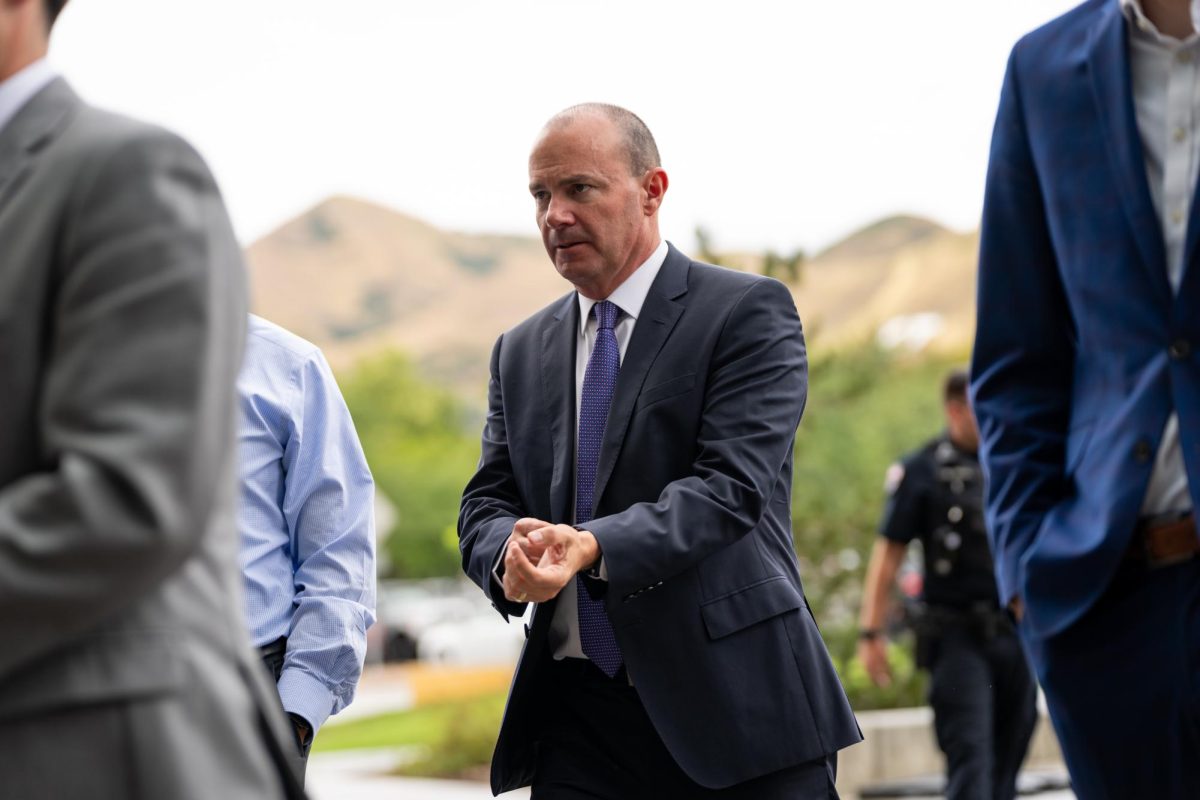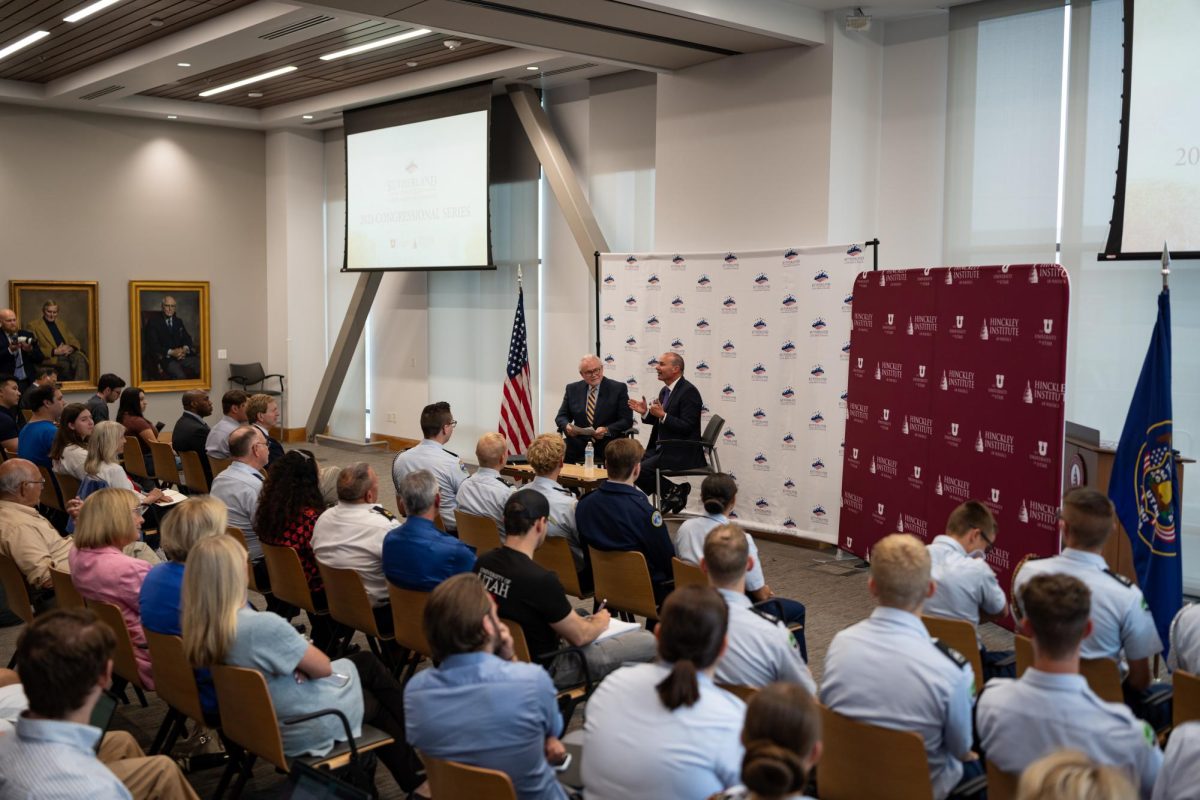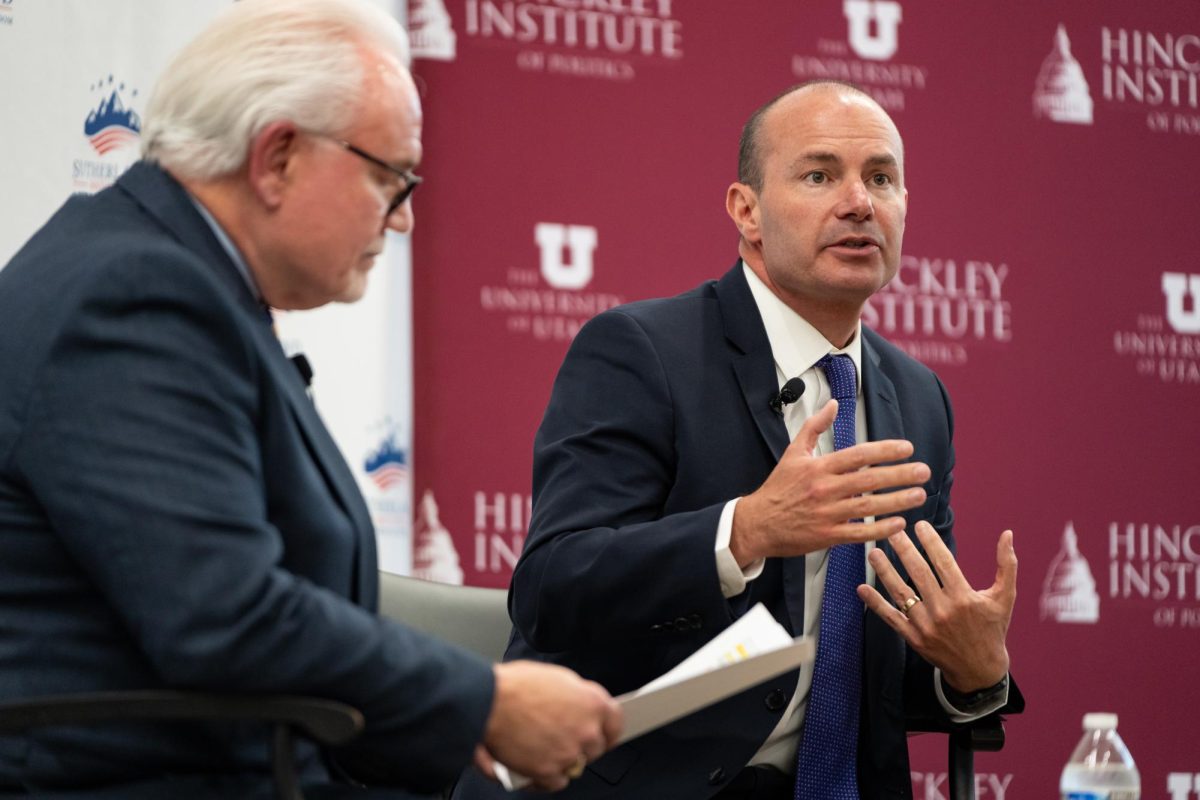Sen. Mike Lee spoke at the Sutherland Institute’s 2023 Congressional Series Tuesday, just a day after Sen. Mitt Romney visited the U. Lee discussed the REINS Act, the value of higher education and the need for civility in politics.
Rick Larsen, CEO of the Sutherland Institute, moderated the event.
The REINS Act
The Regulations from the Executive in Need of Scrutiny Act of 2023, which passed the House in June, limits executive lawmaking power and increases congressional authority over government agencies.
“In other words, it’s a means by which new major rule federal regulations would be treated as legislative proposals to be considered on a fast track basis by Congress,” Lee said.
Lee said the REINS Act isn’t a complete fix to the problem of excessive delegation of lawmaking power but it’s as close to perfect as it can get.
“What we’re trying to fix is that detachment from the American people of the authority to make law,” he said.
Lee paraphrased James Madison, a federalist and founding father, and his comments in Federalist Paper 62.
“It’ll be a little avail to the American people, that their laws are written by men and women of their own choosing,” Lee paraphrased. “If those laws be so voluminous, complex and ever-changing that they can’t be read and understood by those subject to them.”
Lee said the REINS Act is about liberty and what it means to live in a system in which the government and those who make the laws should be elected and held accountable.

The Value of Higher Education
Lee was asked about his ideas to bring transparency reform to institutions of higher education.
He said institutions get stuck in the credit hour system everyone is accustomed to, but there is value in mentorship programs, apprenticeships or massive open online courses.
Lee also wants institutions to report on what degrees people are graduating with, their employment situations and their ability to repay student loans.
“I strongly believe … there’s independent value to obtaining an education, even including, and especially an education outside of the field in which you might want to limit,” he said.
Jaspar Ruegemar, a University of Utah student studying political science, said he was interested to see what Lee had to say so he could further his own studies.
“The reason why I show up here in the first place is because I get to familiarize myself further. … I love how sincere [Lee] is in terms of addressing the American people and how what he’s talking about in the room applies to the American people, because that’s where we can relate as students, as people ourselves,” Ruegemar said.

Civility in Politics
Larsen asked Lee where he thought the functionality of Congress stood. Lee said he’s seen some trends toward a consolidation of power.
“Even within Congress … there is a different type of excessive consolidation of power that I also find troubling, which is that members are tending more and more to refer to and behave as if they work for the legislative party leaders in their respective houses of Congress,” he said.
When it comes to civility, Lee said its easier to disagree if he focuses on the principle rather than the personality involved.
“If you’re focused instead on the people you’re responsible for looking out for and the fact that you took an oath to the Constitution that requires certain procedures to be followed … that takes down the temperature a lot,” he said.
He added despite what the media reports, Congress’ apparent contention is not as bad as it seems.
“It’s gotten a little tougher of late because emotions sometimes get away with folks, and I do believe that will continue to get worse as long as we continue to put more and more into the federal government that may not necessarily belong there,” Lee said. “It’s only going to get more contentious but it’s not nearly as bad as it appears.”
Lee closed out by praising federalism and the separation of powers.
“Federalism and separation of powers, at the core, are neither republican or democratic,” he said. “They’re neither liberal nor conservative, and they are simply constitutional principles. I very much look forward to the day when both political parties … make themselves in the office to which they’re aspiring, less powerful, because I think most of us can agree that there is too much power in Washington.”




